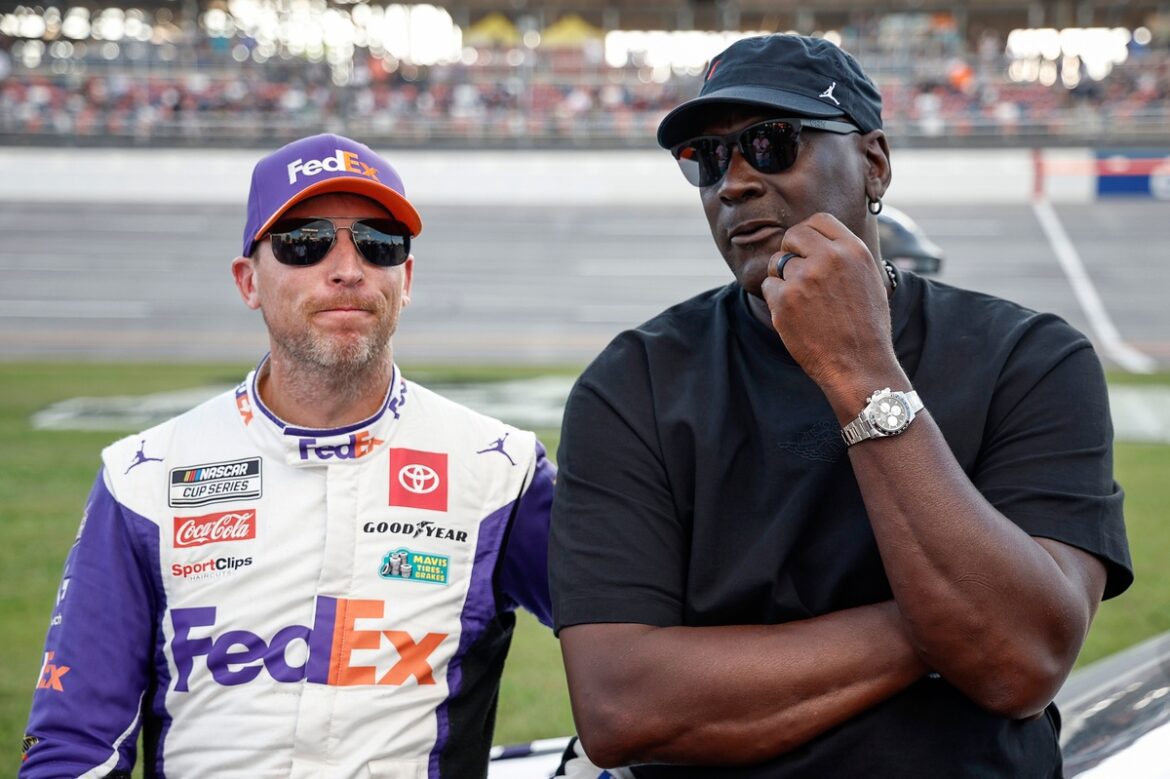NASCAR Legal Battle: Analysis of 23XI Racing vs. Front Row Motorsports Appeal
In a significant legal confrontation, 23XI Racing and Front Row Motorsports (FRM) are currently engaged in a courtroom battle against NASCAR. This tension escalated on a recent Friday as oral arguments were presented before a panel of judges, including Paul Victor Niemeyer, Steven Agee, and Stephanie Thacker, at the United States Court of Appeals in Richmond, Virginia. The focal point of this appeal revolves around NASCAR’s attempts to overturn a preliminary injunction granted to both teams in December 2024. This injunction allows them to compete as chartered teams while bypassing certain stipulations in the 2025 Charter Agreement, particularly the controversial release clause that limits their ability to sue NASCAR.
The legal discourse unfolded with NASCAR’s lead attorney, Christopher Yates, and the teams’ attorney, Jeffrey Kessler, presenting their respective positions. The crux of NASCAR’s argument hinges on the assertion that the teams are not prohibited from racing, even if the injunction is revoked, which would effectively strip 23XI and FRM of their court-validated charters mid-season. Yates emphasized that the teams had previously declined a contract offer, underscoring that “there is no contractual relationship” between the parties involved. He contended that the district court’s injunction inadvertently imposes a contract where none exists, disrupting the established balance within the racing community.
Yates further criticized the notion that NASCAR operates as a monopoly, asserting that the charter negotiations spanned over two years, which he argued is inconsistent with monopolistic behavior. “Monopolists don’t negotiate for two and a half years,” he stated, pointing out that the teams only raised concerns regarding the release clause after rejecting the contract offer. This release clause, which the district court deemed exclusionary, became a focal point in the legal arguments, with Yates asserting that the court misunderstood the implications of the situation.
During the proceedings, Judge Niemeyer posed several probing questions to Yates. The attorney made a compelling argument, asserting, “You can’t ask to be bound to something you’re simultaneously contesting as violating antitrust laws.” He highlighted that the underlying motivation for the teams was financial, aiming to extract more favorable terms from NASCAR.
As the discussion transitioned to Kessler’s opening remarks, Judge Niemeyer interjected early, expressing confusion over Kessler’s argument. The judge articulated a clear stance: if the teams did not wish to adhere to the contract, they should opt to sue instead. Kessler countered with a passionate defense, yet the dialogue became somewhat contentious while maintaining a professional tone. Judge Niemeyer urged Kessler to steer away from discussing irreparable harm and focus on the antitrust claims, which he identified as the central issue.
Throughout the arguments, the judges noted that the mutual release clause in the charter agreement prevents both NASCAR and the teams from pursuing litigation against one another. Niemeyer queried whether including such mutual releases is inherently anti-competitive, suggesting that if the teams found the release objectionable, they could simply avoid entering into the contract altogether. Kessler attempted to articulate that the release could be utilized to maintain a monopolistic position, but the judges remained skeptical, reiterating their viewpoint that the teams had options available to avoid the contract entirely.
The judges also highlighted the unprecedented nature of this case, with Judge Thacker remarking that in over 135 years since the Sherman Antitrust Act was enacted, no similar case has surfaced. Kessler acknowledged the uniqueness of the situation yet referenced a Mitsubishi case where a release was employed to shield antitrust behavior. As the judges continued their inquiries, they sought clarity on the teams’ desired outcome. Kessler asserted that they could have participated in the series under the existing terms, indicating that the release’s objective was not merely to gain entry but to address broader concerns.
Kessler illustrated his argument with an analogy involving a monopolistic apple farmer, aiming to clarify the potential financial harm faced by the teams. He argued that the underlying injury stems from receiving inadequate compensation, and he sought damages for this perceived inequity. However, the judges reiterated that the teams could simply decline the contract and pursue their claims independently, reinforcing the idea that they could not expect the benefits of the contract without adhering to its terms.
The judges remained focused on the implications of potentially overturning the injunction mid-season. Kessler cautioned that doing so could create chaos not only for 23XI and FRM but also for third parties like Stewart-Haas Racing (SHR), which had sold charters to both teams before ceasing operations. He stressed that if the charters were returned to SHR, the organization would lack the necessary infrastructure to run a team, potentially leading to significant disruption within the NASCAR landscape.
In his rebuttal, Yates rejected any claims of antitrust violations, reiterating that NASCAR is not obstructing the teams from competing in the racing series. He pivoted to discuss the notion of irreparable harm, arguing that both NASCAR and the teams are adversely affected daily by the continuation of the injunction. Yates articulated that NASCAR is compelled into a contractual relationship against its will, while other teams suffer financially due to the current arrangement.
Judge Agee raised questions regarding open spots in races and the availability of opportunities for teams like 23XI and FRM. Yates contended that, with two-thirds of the season remaining, these teams would have no difficulty qualifying based on performance. He urged the court to expedite its decision, emphasizing the ongoing harm to both NASCAR and the teams.
As the hearing concluded, the judges acknowledged the complexity of the issues at hand. While a decision regarding the injunction’s legitimacy remains pending, the NASCAR season continues to unfold, and the implications of this legal battle are poised to reverberate throughout the racing community. The stakes are high for all parties involved, and the outcome of this case will undoubtedly shape the future landscape of NASCAR’s charter system and its contractual relationships with teams.
